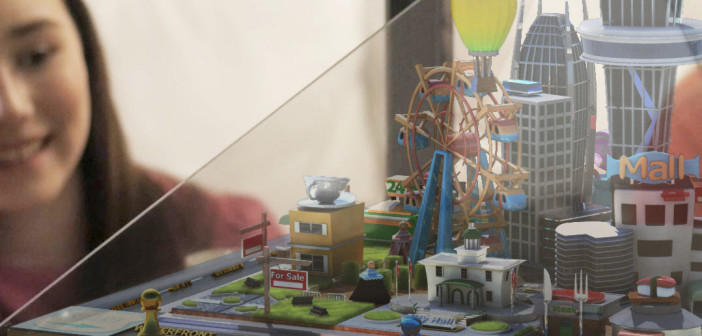Tabletop holographic platform turns 2D content into a 3D experience using mobile devices
Holus, a holographic tabletop platform that when connected to a smartphone, tablet or computer, turns 2D content into a 3D hologram, has launched on Kickstarter.
Aiming to create a ‘social campfire’ where users can learn, collaborate and have fun through immersive displays, Holus enables people to bond through technology. Developers can also create their own gaming and business applications to further unlock the potential of the holographic concept.
Viewable from four different angles, Holus allows the user to have a natural relationship with the holographic content through position tracking. This in turn enhances health, visual interaction and memory retention, by encouraging the user to move around and explore their holographic content.
Vincent Yang, CEO, explains: “Our vision with Holus was to create an open platform that was accessible to absolutely everybody. Holus has unlimited potential that allows people to tailor everything to their personal needs. Whether that be teaching children in an immersive manner, or revolutionizing how global business relationships are formed, we hope Holus will have a hugely positive impact on everyone. We can’t wait to bring it to the Kickstarter community.”
H+, the team behind Holus, is offering two versions of the holographic platform at launch. The Holus Home Edition comes equipped with two smartphone charging docks and projects 3D information for all to see. It can be used for a digital board game night, or demonstrating concepts such as DNA structure or the solar system. With applications available via Google Play and iTunes, Holus is a family entertainment device that brings holographic experiences into the home for the first time.
The developer version, Holus Pro, includes an HDMI port and SDK tool so that developers can unleash a world of new possibilities for content creation. The platform can ‘holofy’ digital models before 3D printing and while connected to a device, develop 3D characters for games and scan objects to turn them 3D. Both Unity and Unreal, two of the most powerful video game engines, will be included in the SDK. Middleware as part of the SDK allows any sensory devices to be connected, with little programming to Holus, such as Kinect, Leap Motion, Emotiv Brain Sensor and Occipital 3D scanner.
The professional environment can also prosper through Holus, with holographic teleconferencing and holographic business presentations a possibility.
Holus predicts position through motion tracking. It enables users to easily pair smartphones with Holus in real time through Wi-Fi and Bluetooth, and includes embedded high quality speakers, charging stations for smartphones, and a tablet dock. Default content installed with shipped product includes a game, utility, music visualiser, and holographic character library app.
Holus is available on Kickstarter starting at $550.





